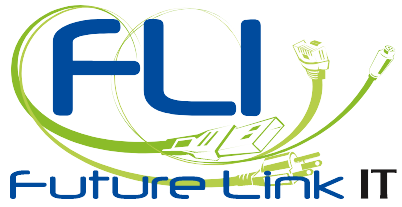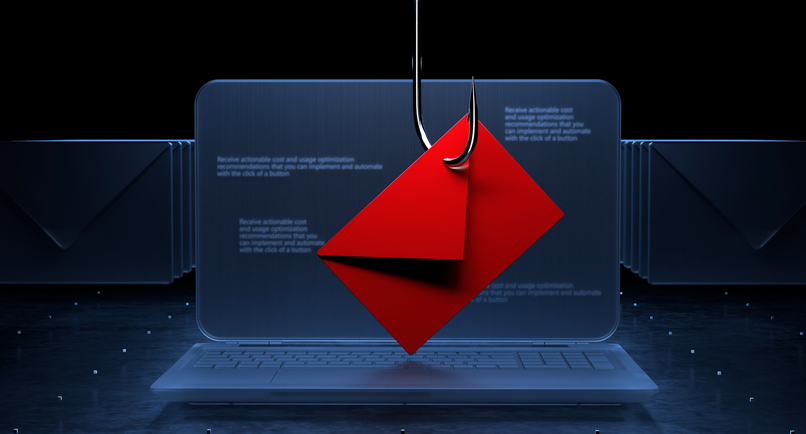TL;DR: Phishing Prevention in 2025
-
Phishing remains the #1 cybercrime and attacks are growing more sophisticated with AI.
-
Businesses face an average cost of $4.8M per breach, with phishing responsible for 16% of incidents.
-
The best defenses include:
-
Email security filters to block suspicious messages.
-
Employee training to spot scams.
-
Regular backups to ensure fast recovery.
-
Partnering with a managed IT provider for layered protection.
-
-
Awareness and preparation are key to avoiding costly downtime and reputational damage.
Read the full article below!
Every week, we hear about businesses falling victim to cyberattacks. That’s why phishing prevention is more important than ever. Attackers are improving their tactics, mimicking trusted brands like Microsoft and Amazon, and creating high-pressure messages that trick people into clicking dangerous links or sharing credentials.
Phishing isn’t rare. In Q1 2025, the APWG recorded over 1 million phishing attacks, marking the highest volume since late 2023 (APWG). The surge is partly due to AI, which now generates 82.6% of phishing emails (KnowBe4, KnowBe4 Report). But you don’t have to be part of that statistic. Here are four proven strategies to protect your business from phishing.
Stronger Email Security
AI-driven phishing attacks are bypassing traditional defenses. From 2024 to 2025, phishing email volume grew by 17.3%, while the number of attacks slipping past secure email gateways rose 47% (KnowBe4).
The first step in phishing protection is strengthening your email security. Modern filters use AI and machine learning to block suspicious messages before they reach inboxes.
Training Employees to Spot Scams
Technology alone isn’t enough. People are still a business’s biggest risk—and biggest defense. KnowBe4’s 2025 report shows organizations reduced their Phish-Prone™ Percentage—from a baseline of 33.1%—by 86% within 12 months of training (KnowBe4 Report).
Preventing phishing attacks relies heavily on employees who know how to recognize suspicious emails. A few training sessions can turn your team into a powerful line of defense.
👉 You may also like: 3 Cybersecurity Solutions That Can Help Avoid Costly Downtime
Backups: Your Safety Net Against Cyberattacks
Phishing remains a leading cause of costly breaches. Between March 2024 and February 2025, 16% of data breaches started with phishing, with an average cost of $4.8 million per incident (Secureframe).
Regular backups are one of the best ways to protect your business from downtime. Store multiple, frequently updated copies of your data in separate locations—and test them regularly. If an attack happens, backups will get you back up and running quickly.
👉 Read next: Don’t Mess Around When It Comes to Your Data Backup.
Managed IT Providers: A Smarter Defense
A managed IT provider brings layered security, including advanced tools like Secure Email Gateways (SEG) and Post-Delivery Protection (PDP). With phishing evolving into smishing (SMS-based phishing) and QR code scams—QR phishing alone rose 442% in 2024 (Secureframe)—an MSP helps you stay ahead of threats.
Cybercriminals are evolving—your defenses must too. Don’t wait for a breach to damage your business. Reach out today and put the right phishing protection strategy in place.
Want to Go Deeper?
Phishing is still the most common cybercrime, and the tactics are evolving faster than ever. That’s why we’ve put together a free resource: The Complete Guide to Phishing Scams: The Facts, Pitfalls & Solutions You Need to Know.
Inside, you’ll learn the latest phishing methods, real-world examples, and proven steps to protect your business from costly attacks.
FAQ’s
What is phishing in simple terms?
Phishing is when scammers pose as trusted companies to trick people into clicking links or giving up private information.
How can employees recognize phishing emails?
Look out for urgency, spelling errors, suspicious links, or messages from unexpected senders. Security training helps spot these.
Is email security software enough for phishing prevention?
It’s essential, but the best protection combines software with employee training and tested backups.
Why are backups critical for phishing prevention?
If attackers steal or lock your data, backups let you restore operations fast and reduce downtime.
How do managed IT providers support phishing prevention?
MSPs deploy advanced filtering, run training programs, monitor threats, and manage incident response so businesses stay protected.

